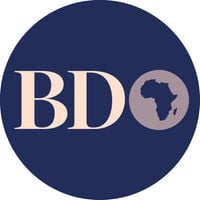SUMMARY
- Kenya’s inflation is expected to remain elevated in the coming months on the increased cost of fuel and food but was likely to remain within the upper limit of 7.5 percent, the Central Bank of Kenya (CBK) said on Tuesday.
- The CBK’s Monetary Policy Committee (MPC) said rising global crude oil prices, supply constraints that have raised the cost of raw materials for local factories and dry weather conditions would keep the cost of living measure high.
Kenya’s inflation is expected to remain elevated in the coming months on the increased cost of fuel and food but was likely to remain within the upper limit of 7.5 percent, the Central Bank of Kenya (CBK) said on Tuesday.
The CBK’s Monetary Policy Committee (MPC) said rising global crude oil prices, supply constraints that have raised the cost of raw materials for local factories and dry weather conditions would keep the cost of living measure high.
“Inflation pressures are expected to be elevated in the near term, mainly driven by increases in fuel and food prices, and the impact of the recently implemented tax measures,” CBK Governor Patrick Njoroge the top-decision making organ said in a statement after its meeting yesterday. “However, inflation is expected to remain within the target range with muted demand pressures.”
Kenya maintains an inflation target range of 2.5 percent to 7.5 percent, a goal that was last breached during a biting drought in 2017, which was also an election year.
Inflation rose to 6.57 percent in August from 6.55 percent a month earlier, largely driven by the average food and fuel cost index, which climbed 10.7 percent and 9.1 percent, respectively.
The MPC, however, noted that inflation pressures were coming from supply-related constraints and not consumer demand, and chose to retain the benchmark interest rate at seven percent to support economic recovery.
Credit to the private sector in the 12 months through August stood at seven percent, recovery from a 25-month low of 6.1 percent in July.
This was on the back of new taxation measures such as a 20 percent excise duty on fees and commissions earned by lenders, which raised the cost of credit.
“The committee noted that inflationary pressures were rising domestically and internationally, even as expectations about inflation remained anchored within the target range in the medium term,” Dr Njoroge, who chairs the MPC, said. “The MPC, therefore, saw the need to closely monitor developments in inflation and stands ready to respond to any second-round effects.”






No comments :
Post a Comment